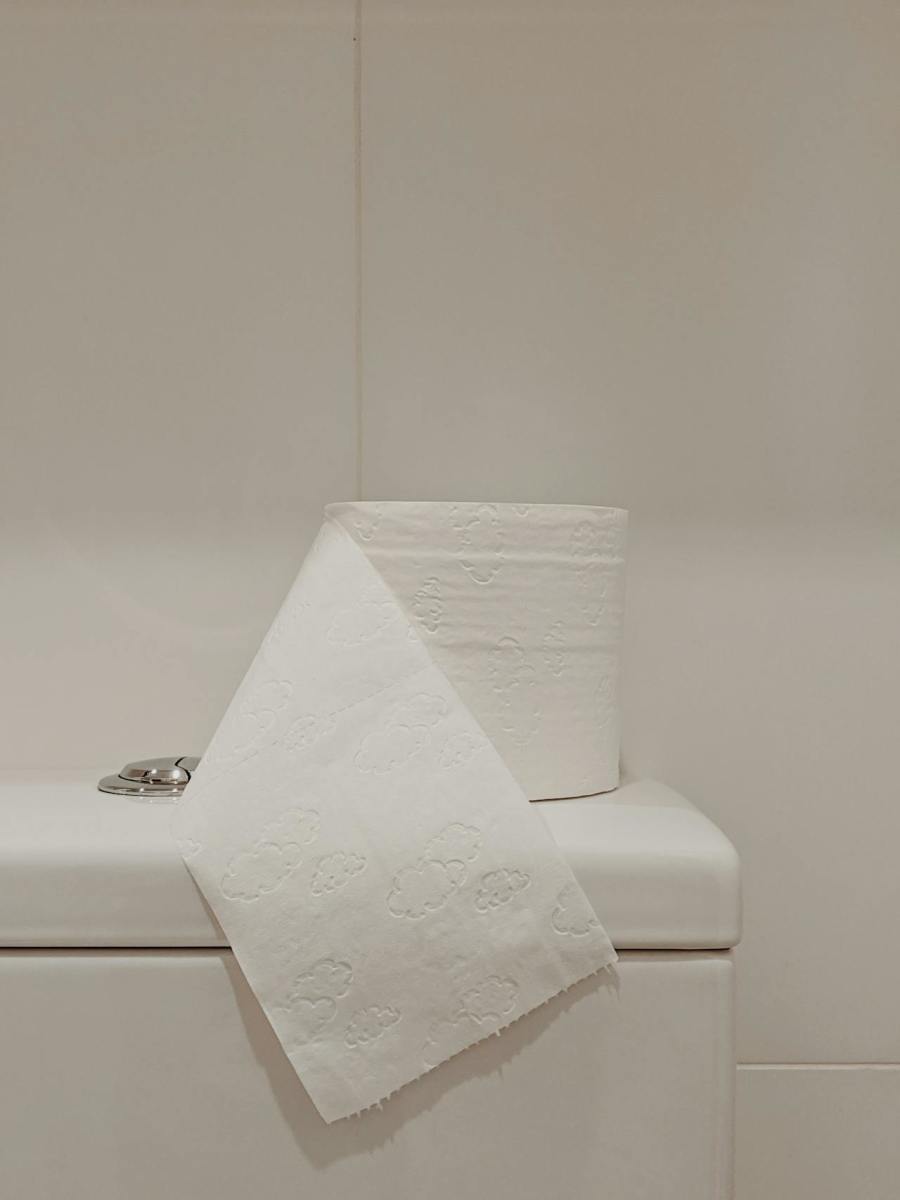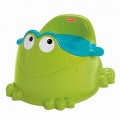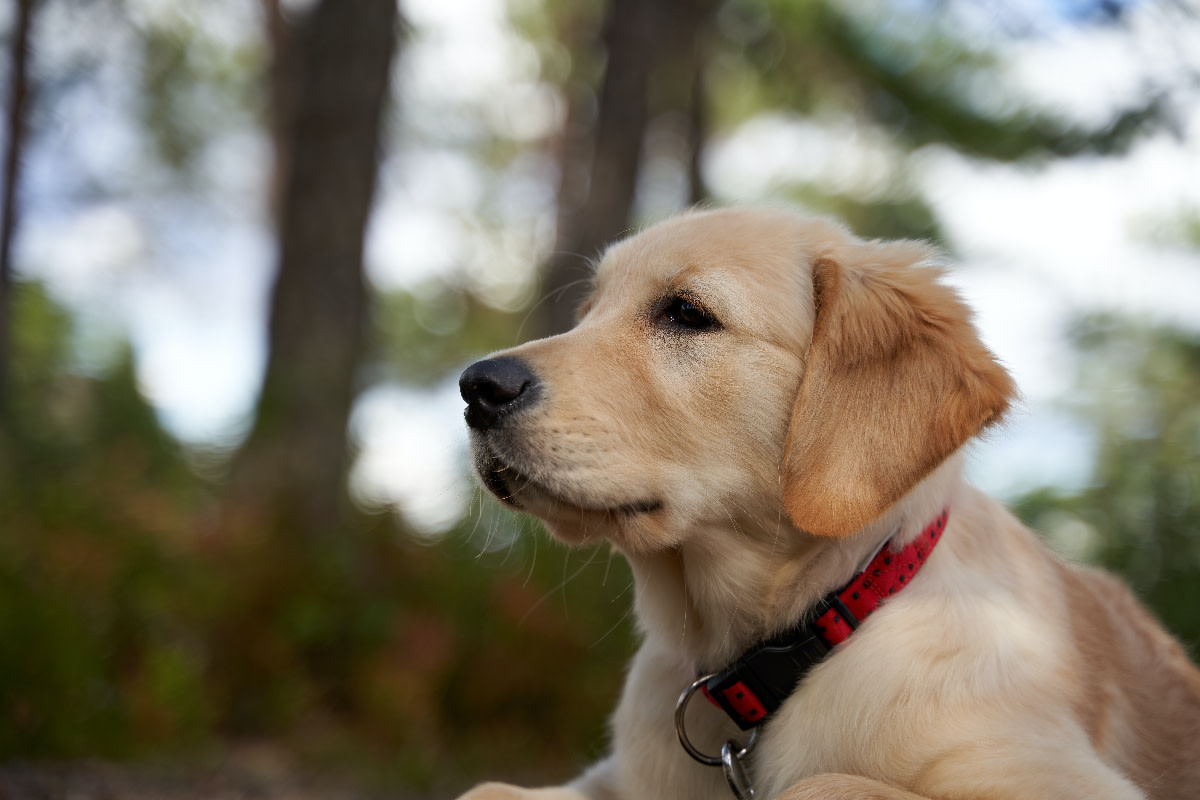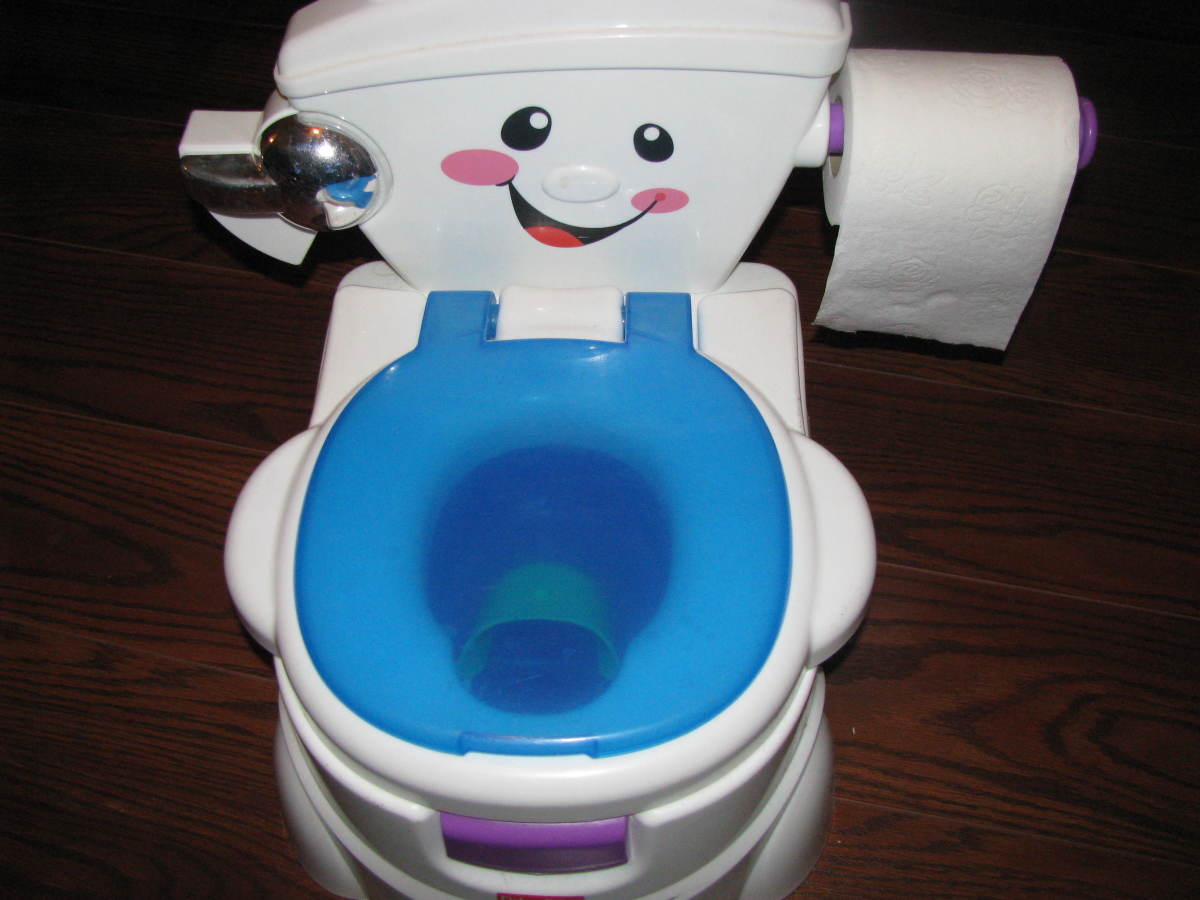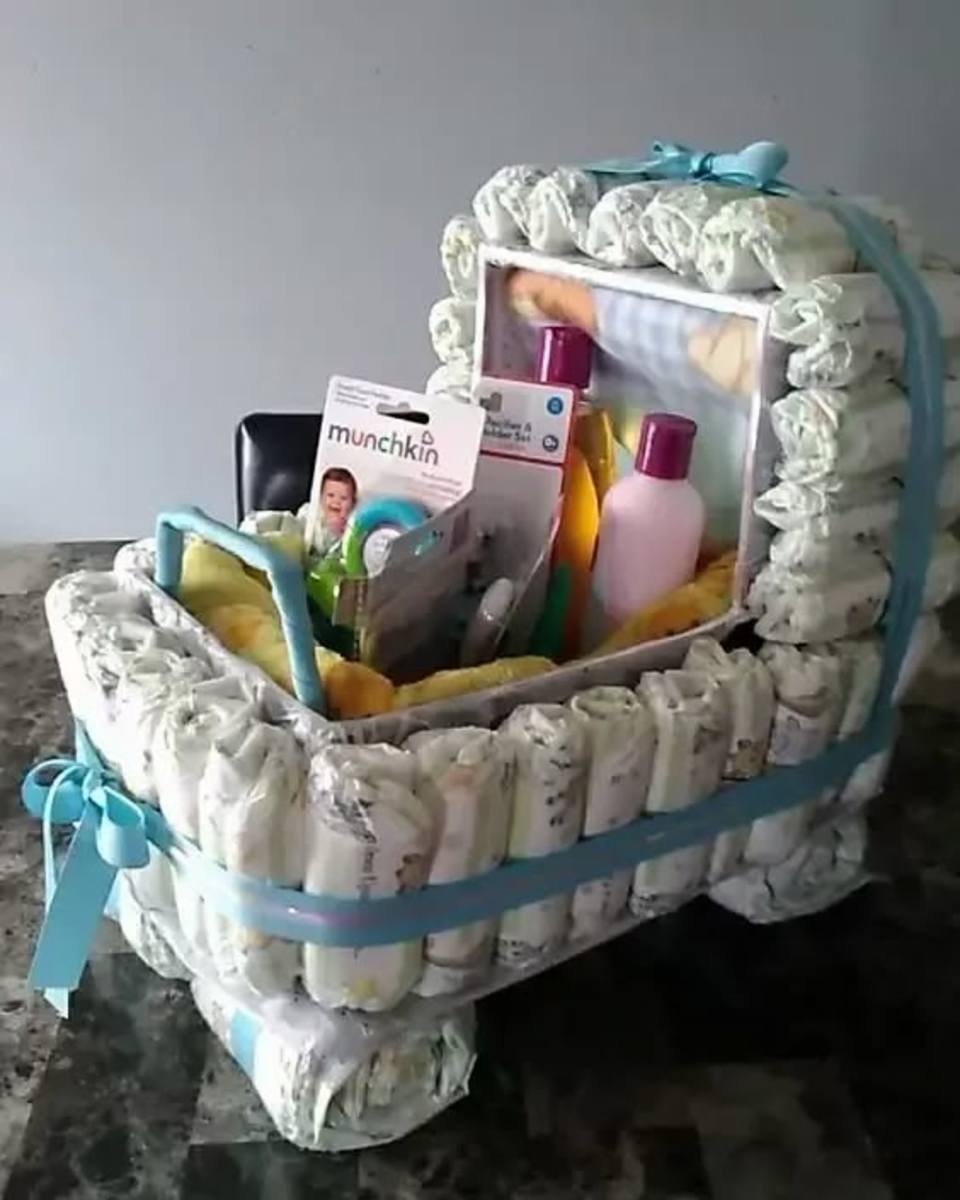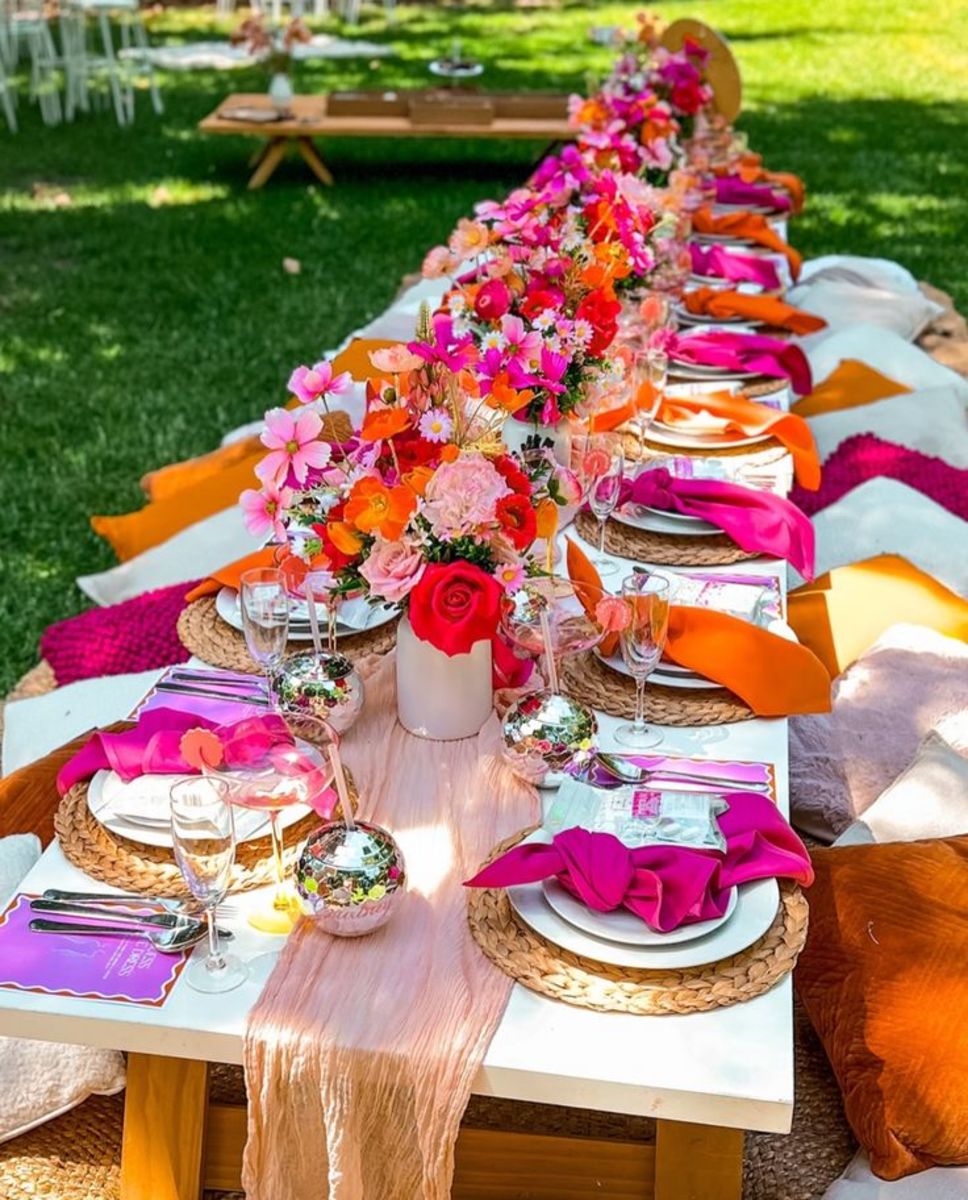Potty Training - The Naked Truth
When Do We Start?
I am the mother of two boys, both potty trained at twenty months. I also taught a classroom full of two and three-year-olds for many years and spent much of those years crouched down in the bathroom trying to convince stubborn toddlers to use the toilet. I have been asked by more parents than I can count, "Is she ready?" There is no magic age for learning to use the toilet. Some kids do it as early as twelve months, some as late as four years. If you are contemplating beginning training, ask yourself these questions:
1. Is your child physically able to "hold it" until she gets to the potty? When her brain tells her she has to go, is there time to make it to the toilet?
2. Is he showing any interest? Many children become fascinated with the toilet. It's why you don't get any privacy in there anymore. This is a good sign he may be ready to train.
3. Are YOU ready? Potty training works best with full commitment. Are you prepared for cleaning up pee and doing a lot of laundry?
If you answered "yes" or at least "possibly" to these questions, go for it!
Pre-Training
If your child is starting to show some interest, you might do a few things before committing to full-blown potty training to get her used to the idea. Let her accompany you or an older sibling into the bathroom to see what goes on in there, provided everyone's comfortable with that. Tell her that adults and older children pee pee in the potty, instead of diapers. Encourage her to sit on the potty herself, but don't force it if she doesn't want to. If she does happen to go while sitting there, cheer like you won the lottery. You also might purchase a small training potty and let her explore and sit on that.
Helpful Hints
- Don't ask your child if he needs to use the potty, unless you're willing to take "no" for an answer. Tell him: "It's time to use the potty!"
- Build using the potty into your routine. Always go before leaving the house, before bed, and other logical times. It's easier to get children to do things when they expect them at certain times or before certain events.
- Use elastic waist pants and/or dresses your child can easily pull up and down. Stay away from buttons and zippers. DO NOT PUT THEM IN OVERALLS!! (Sorry, but this was a pet peeve of mine while potty training in the classroom.)
- There are many great children's books about using the potty. Read these to your child in the bathroom or anytime at all. They are also good during pre-training to introduce using the toilet to her.
Pants Versus Naked
There are two different ways I've helped potty train children. The first, the pants method, is what most people do. It's how all the children in my classroom did it. The second is the naked method. I hit upon this with my boys, and it seems to work well with younger children, especially if they like running around with no clothes on.
The Pants Method
This method is what most people are familiar with. Go out and buy a whole lot of little underwear. If you can find the padded training kind, they might save your carpet and couch. If they have your child's favorite super hero on them, all the better. You can encourage him to keep Batman dry. This method works well for children who like to be clothed and for older children who can pull their own pants up and down.
The Naked Method
When my oldest began to get interested in the toilet around eighteen months, I was stumped. I wanted to seize the opportunity of his interest, but I knew he wouldn't do well with underwear at his age. How would he know it wasn't just like a diaper? That's when I hit upon this technique. Let your child go without pants for a few days. Needless to say, you have to stay home for this. The idea is that being naked from the waist down makes it very easy for a child to use the potty, as there are no pants to mess with. Also, if he starts to have an accident, you'll see it right away. You can grab him and run him to the potty to finish. Since both my boys loved to be naked, this worked beautifully. Then, you can add pants as they get the hang of it. When you add pants, it helps if you point out how adults pull their pants down to potty. Also, reading your child books about using the potty and pointing out how the kids in the book pull down their pants helps get the "how pants work" message across. Let him try pulling his pants down to sit on the potty before he actually needs to go, so he can practice while not under pressure.
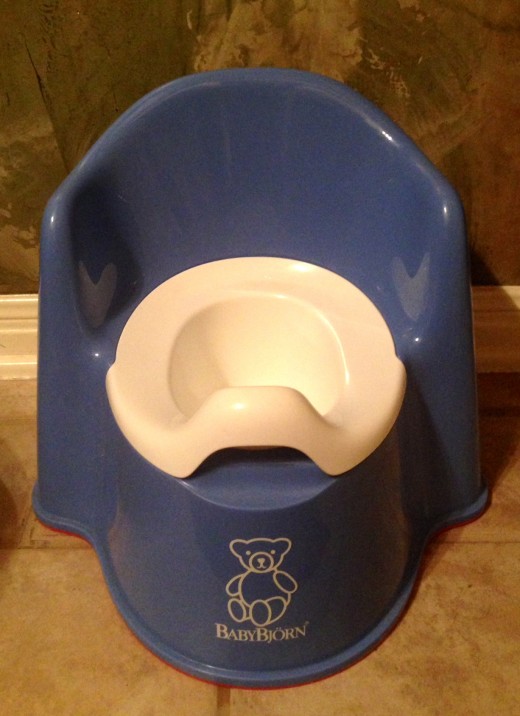
Tips and Tricks
There is no one surefire way to potty train. Every child is motivated to use the toilet a little bit differently. The key is finding what works for yours. Here are a few ideas to try:
- Pick a time you can stay home and focus on training. Think of it like this, "For these three or four days, we are potty training. That's what we are doing. Everything else is secondary." It gets old, but it'll be so worth it when you don't have to change diapers anymore. A long weekend, assuming you're not traveling, is usually a good time.
- Set a timer to go off every hour or so, however often you think your child needs to go. When the timer goes off, parade to the bathroom together, sing a silly song, make it a production. I used this for my youngest and called it a "potty party."
- Get older siblings involved. Little kids love to be big kids. If you have access to a big kid who's willing to be an example, get them to go to the potty together.
- Give your child something special to play with while sitting on the potty - something he only gets when he's on the potty. Books work well, too. One of our bathroom reading favorites is Everyone Poops, by Taro Gomi.
- Have your child take her little potty to whatever room she's in. If it's right there, she's more likely to use it when she needs to. We had two - one for upstairs, one for down.
- Be consistent. I can't say this enough. Every child potty trains eventually, but it will happen a lot faster if you commit to being done with diapers. This goes for pull-ups, too. Pull-ups are just like diapers to a child. They can't feel the wetness if they have an accident.
- Don't be afraid to quit. This might seem in direct conflict with my "be consistent" thing, but it's not. Sometimes you think your child is ready, but she has twelve accidents three days in a row. If it gets too stressful for everyone, put the underwear away, go back to diapers, and don't even talk about potty training for a while. Try again in a few months.

Rewards
Many people use incentives to get children to use the potty - a sticker chart or the promise of a new toy at the end of the week. In my experience, these don't work well. The child buys into it at first, but loses interest in the reward fairly quickly. I'm not saying not to try it, if you're at your wits end. All's fair in love, war, and potty training, but I wouldn't start with it. Go the simpler route of using your excitement and approval of their using the potty as the reward. Only break out the reward system if nothing else seems to work.
Good First Potty Outings
- The grocery store or other store where your child can sit in the cart on a piddle pad, minimizing public accidents
- The zoo, or any place outside, again where accidents are less of a big deal
- A close friend or relative's house, where your child is comfortable, knows where the potty is, and the friend or relative won't make a big deal out of an accident.
Pottying in Public
After you've trained for a few days, you might decide you're ready to take this thing public. After all, staying home all day watching your child for signs of needing to pee gets old. The first trips out of the house without diapers are a little stressful, but here are a few tips to make it go as smoothly as possible:
- Make that first trip short. Potty before leaving the house, and visit the bathroom as soon as you get where your going. If your child just went at home, he may not go again or even want to sit on the potty. The point of this visit is to let your child know there are toilets everywhere. Explain that this is where you will go should he need the potty. You will probably make some unnecessary trips to the bathroom at first, because he gets a kick out of seeing you run through the store to get him to the bathroom, but it will pass.
- A lot of people recommend piddle pads. These are absorbent sheets with plastic backing you can place in a stroller or carseat to protect it from accidents. These work great, but, if you have an old waterproof crib mattress pad lying around, it works just as well to cut it up to protect your child's seat. This is why any store that has carts makes a good first potty outing, since you can have him sit in the cart on a pad, keeping accidents off the store floor (which is what most of us are worried about, right?)
- Take changes of clothes, along with a plastic bag for wet ones. You're not done with baby wipes yet, either. They make cleaning up a poop accident much easier.
- Just as you might before bed, limit liquid intake while out and about. My oldest was fond of downing his whole eight-ounce sippy cup of water while in the car on the way to the store. These trips went a lot better when I saved the sippy for the ride home.
Poll
At what age did you toilet train your child?
Night Training
Night training is a whole different animal than day training. Assuming your child is physically ready, day training is about motivating your child to want to use the potty. Night training requires a child to be able to wake up at the body's cues it needs to use the bathroom. Some kids night and day train simultaneously, but most don't. This is the only instance in which I think pull-ups are appropriate. No one wants to change the sheets every single morning, and pull-ups allow for the occasion your child does happen to wake up to go to the bathroom. You can do a few things to encourage night training to happen:
- Limit water drinking right before bedtime.
- Take your child to the potty when you go to bed, after they've been asleep for a few hours.
- Put the little potty in the bedroom, so he can easily access it in the middle of the night.
Mostly though, night training is a waiting game. My oldest night trained when he was four, my youngest when he was two, and I didn't do a thing different. Regardless, waterproof mattress pads are a must for the potty training child. You can layer sheets and mattress pads, so instead of having to put on new sheets when your child wakes up wet in the middle of the night, you can pull off the wet sheet and pad to find a fresh sheet already underneath. Or you can do it the lazy way like we do. When our boys wake up wet, we change their clothes, put a towel down over the wet spot, put them back in bed, and deal with it in the morning.
A Note About Regression
You've been potty training for several weeks, and everything is going great. Then, out of nowhere, he has three accidents in a two hour period. Suddenly, he seems to have forgotten how to use the potty. Sometimes this happens due to a stressful event in a child's life - moving to a new home, starting school, parents divorcing. Sometimes, however, it seems to happen for no reason at all. This was the case with my oldest. I was tearing my hair out, because he'd been perfectly potty trained for three weeks and all of a sudden began wetting himself again, constantly, all day long. I've talked with many parents who experienced the same thing.
Once the initial phase is past, and we're no longer cheering like crazy for poo in the potty, the novelty of using the toilet wears off. It becomes an annoyance that interrupts their play. I realized all the frustration I was demonstrating when my oldest had accident after accident was quite the amusing show for him, so I changed tact. Instead of getting all bent out of shape, I said in a calm voice, "Your pants are wet. Pee pee goes in the potty. Here are your clothes. Go change." Often when a child realizes he's not going to get a lot of attention over his accident AND he has to take the time to change his own clothes, he'll decide it's actually faster and easier to just pee in the potty in the first place.
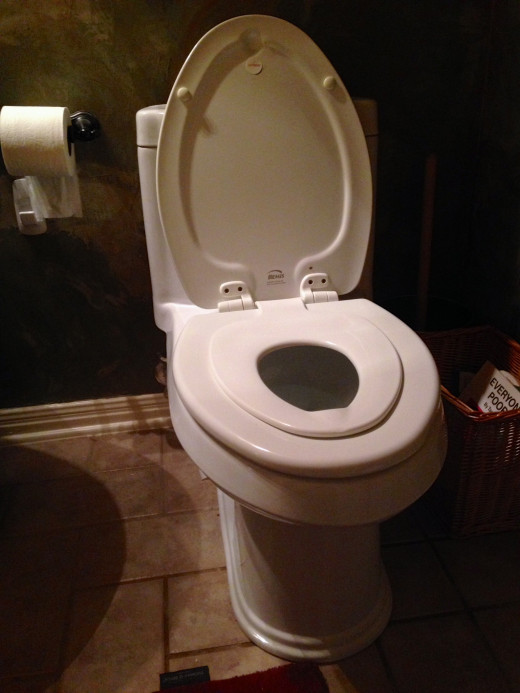
It's Going to be Okay
Whether you naked train or pants train, whether you use a reward system or not, it's going to be messy. Your child will have accidents. It's part of the process, and despite what some claim, no child is potty trained in a day. Just like when she learned to walk, your child will get the hang of using the toilet over time. There will be setbacks, there will be laundry, there will be tears (probably yours.) Just remember it will happen... eventually. Your child will not be the only non-toilet trained fourteen-year-old in middle school. Peer pressure will kick in way before then. Remember to pick a time when you are both ready, both physically and psychologically. There is no one right age or time. Every child is different. And remember, it's okay to quit. If it's just too stressful or not working at all, go back to diapers and forget about the toilet for a few months. And because every child is different, you will probably experience some issue with potty training not addressed in this article. If so, please leave a comment. I'd love to help!
Children's Books on Potty Training
Once Upon a Potty by Alona Frankel - This one comes in a boy version and a girl version. It is very matter-of-fact and has a short, helpful note for parents in the beginning.
A Potty for Me! by Karen Katz - My kids like this one, because it rhymes and you get to lift a flap on every page.
My Potty Book for Boys by D.K. Publishing - This also comes in a girl version and has photographs of real children in it.
Everyone Poops by Taro Gomi - This one was particularly helpful when my youngest was afraid to poop in the potty.

